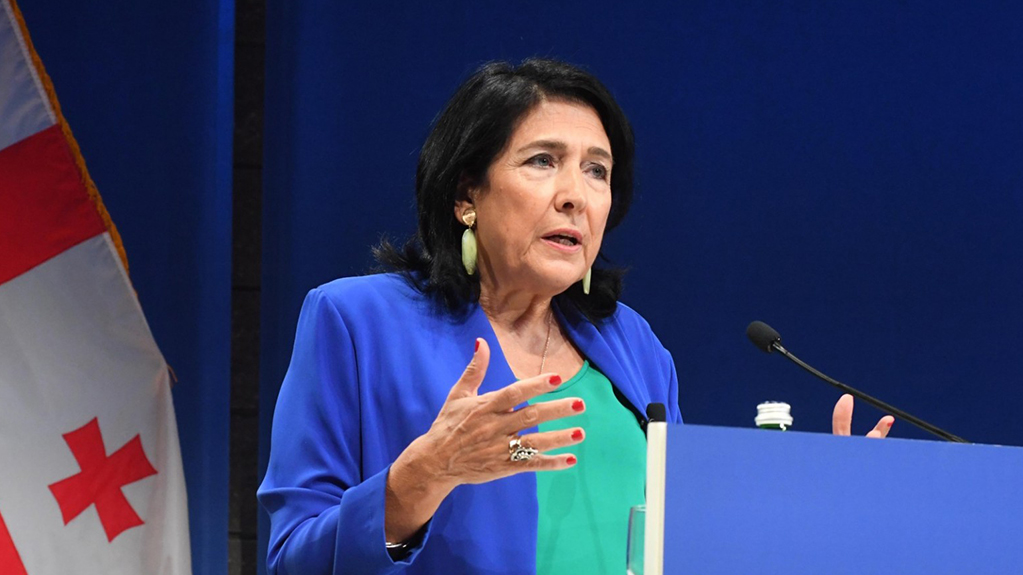The government of Georgia did not grant permission for President Salome Zourabichvili to embark on a working visit to Lithuania from April 10-12. Prime Minister Irakli Kobakhidze signed the relevant decree on April 3.
News
Trending stories
- 1 Geostat: The Average Salary in Georgia Is 2,271 GEL
- 2 Electricity Prices Rising – GNERC to Announce New Tariffs in Late December
- 3 U.S. Sanctions International Criminal Court Judge Gocha Lordkipanidze
- 4 Driving Licenses to Be Restored for Over 18,000 Drivers Revoked for Alcohol Offences
- 5 Georgian Ambassador to South Korea Dismissed – Papaskua Leaves Ministry of Foreign Affairs
- 6 UK Sanctions Russian Company Russneft, Which Sold Oil in Georgia
Yesterday, President Zourabichvili strongly criticize the ruling Georgian Dream party for its recent decisions, particularly the initiation of the Russian law on so-called foreign agents. She stated at a special briefing that the ruling party had firmly said NO to Europe on all fronts.
Salome Zourabichvili has repeatedly been denied permission by the government to undertake official visits abroad. In February of this year, she attended the Munich conference in Germany without government permission.
In 2023, the government blocked more than ten foreign visits by Salome Zourabichvili, including a visit to Ukraine.
The president met with European leaders without government permission, even when the issue of granting Georgia candidate status in the European Union was discussed. As a result, the current chairman of Georgian Dream, Irakli Kobakhidze, appealed to the Constitutional Court against her. Although the Constitutional Court found a violation of the Constitution, the ruling party failed to gather the necessary 100 votes of deputies in Parliament for the impeachment of the President.
The term of office of Salome Zourabihvili, the last president directly elected by the citizens, expires this year. The next president will be elected by a 300-member electoral college through a secret ballot for a five-year term. The college includes parliament deputies, members of local government, the autonomous republics of Adjara and Abkhazia, and members of higher representative bodies.















